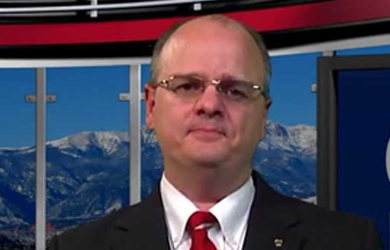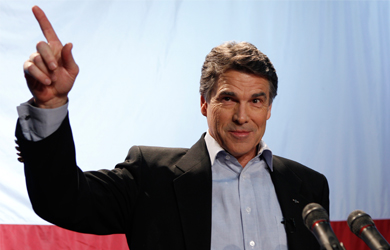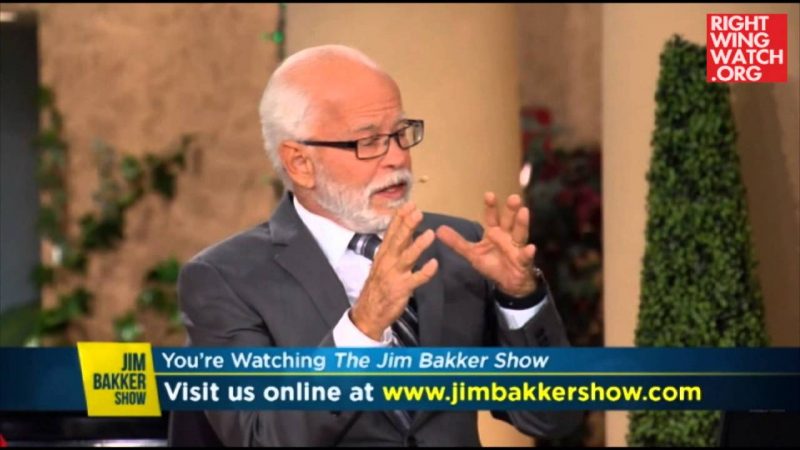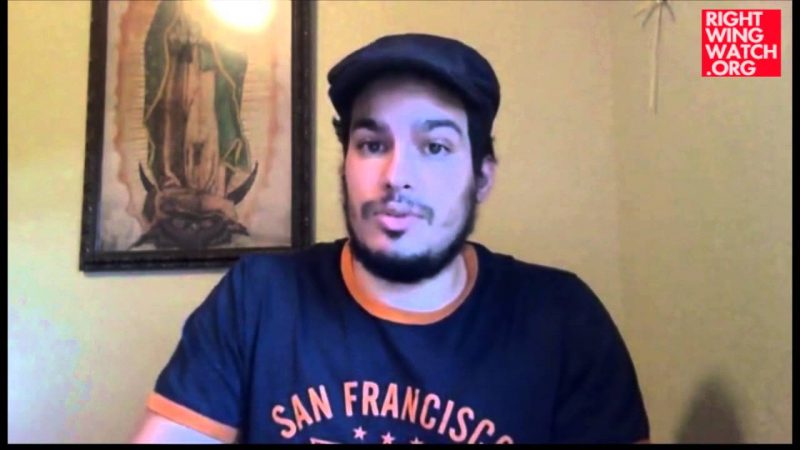In a salivating profile of “Rick Perry 2.0,” Breitbart News senior editor-at-large Noel Pollack praises the Texas governor’s cool new glasses and his articulate, well-researched speeches to even the most “skeptical, if not hostile, audiences.”
“Indeed, Perry is so fluent and confident in the arcane details of cutting-edge policy issues that it is difficult to understand why he has developed a reputation for gaffes.”
Yes, that is a real sentence.
But don’t worry, Pollack reports that despite the fact that Perry is a genius, he is getting help from “some Hollywood conservatives who are advising him (though he will not reveal exactly whom, for fear of blowing their cover).”
Perry tells Pollack that he doesn’t understand why everyone focused on his comparison of gays to alcoholics, a connection he also made in his book “On My Honor”: “I spoke for 59 minutes about job creation and for one minute about that.”
When my Breitbart California colleague Adelle Nazarian and I met Texas Gov. Rick Perry at the magnificent La Valencia hotel in tony La Jolla, he looked more like a venture capital executive than a governor. He was dressed in shirtsleeves and a pale blue tie,
earphones plugged into his iPhone, tapping away on his MacBook Pro and wearing the dark-rimmed glasses that have become the trademark of the post-2012 Perry persona.
It’s Rick Perry 2.0.
…
In addition to boosting California’s fortunes, Perry seems keen on boosting his own–politically, at least, in advance of the 2016 presidential campaign. He is openly considering a second run at the job, after his 2012 effort foundered on immigration policy controversies and debate gaffes. And deep-blue California is the perfect training ground for Perry to hone his message and practice speaking to skeptical, if not hostile, audiences.
Perry has spent hours being briefed on domestic and foreign policy issues at the state’s array of think tanks, including Stanford’s Hoover Institution. He has spent days with tech entrepreneurs and scientists, and was deeply impressed, he says, by a visit this week to General Atomics, which is developing alternative energy sources. He has cultivated a connection to the Scripps Research Institute, taking interest in their work on adult stem cells.
Indeed, Perry is so fluent and confident in the arcane details of cutting-edge policy issues that it is difficult to understand why he has developed a reputation for gaffes. Yet his one-on-one spark sometimes fails to come across onstage.
Perry tells me he is working on that, too, practicing his presentation skills with some Hollywood conservatives who are advising him (though he will not reveal exactly whom, for fear of blowing their cover).
Perry is frustrated by missteps, such as the controversy over his remarks about homosexuality. “I spoke for 59 minutes about job creation and for one minute about that,” he laughs.
Yet he regards such episodes as part of a learning process. In this case, Perry says, the lesson he took from San Francisco is to stay focused on the core issue–which, for him, is the economy. “Gay or straight,” he says, “if you don’t have a job, that’s not good.”








